What Veterans Burial Benefits Can you Receive?
Watch the video below to explore the veteran burial benefits available to you and your family. Learn how these VA benefits can save thousands on end-of-life expenses.
Burial Space
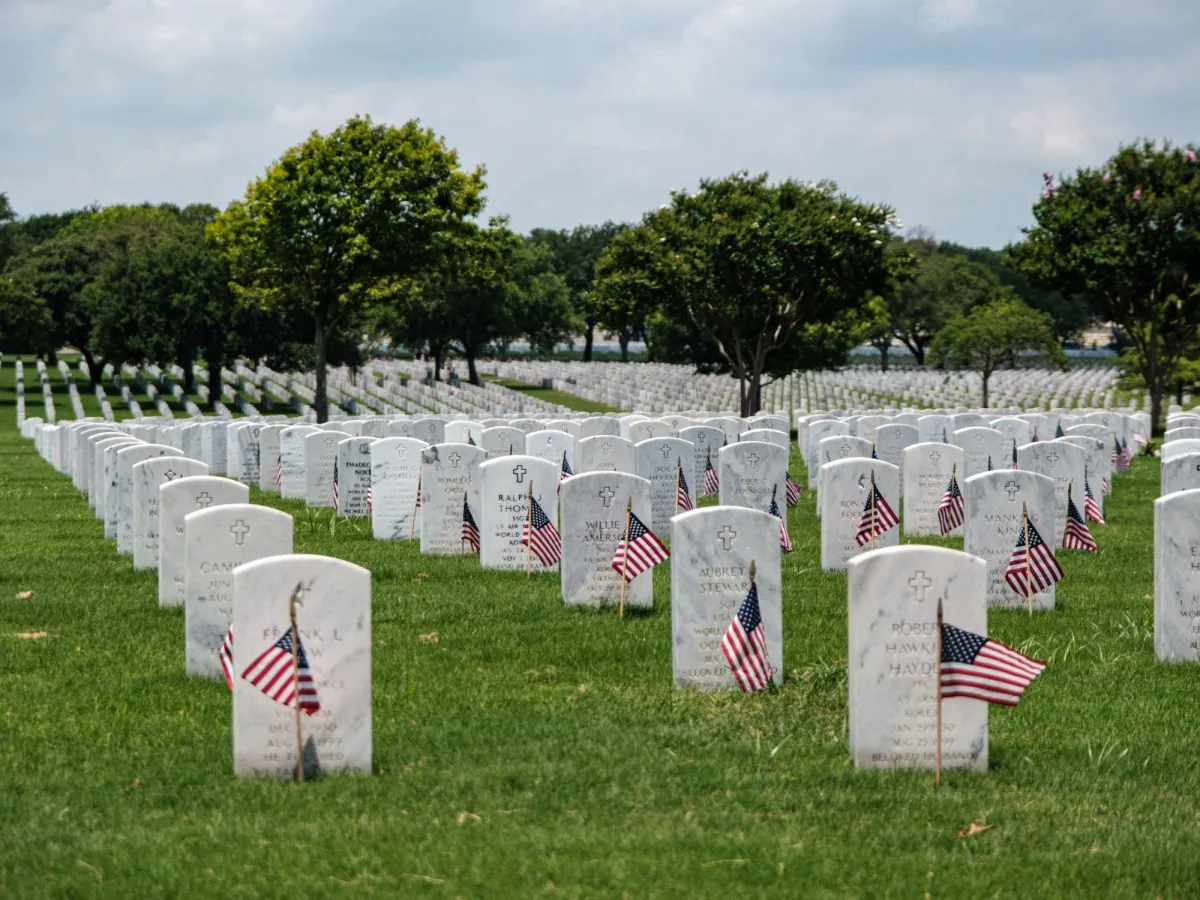
Free burial in a VA National Cemetery is one of the most significant benefits available to veteran service members, their spouses, and their eligible family members. This benefit ensures that those who have served their country are honored with a dignified and respectful final resting place without imposing a financial burden on their families
Headstone & Markers
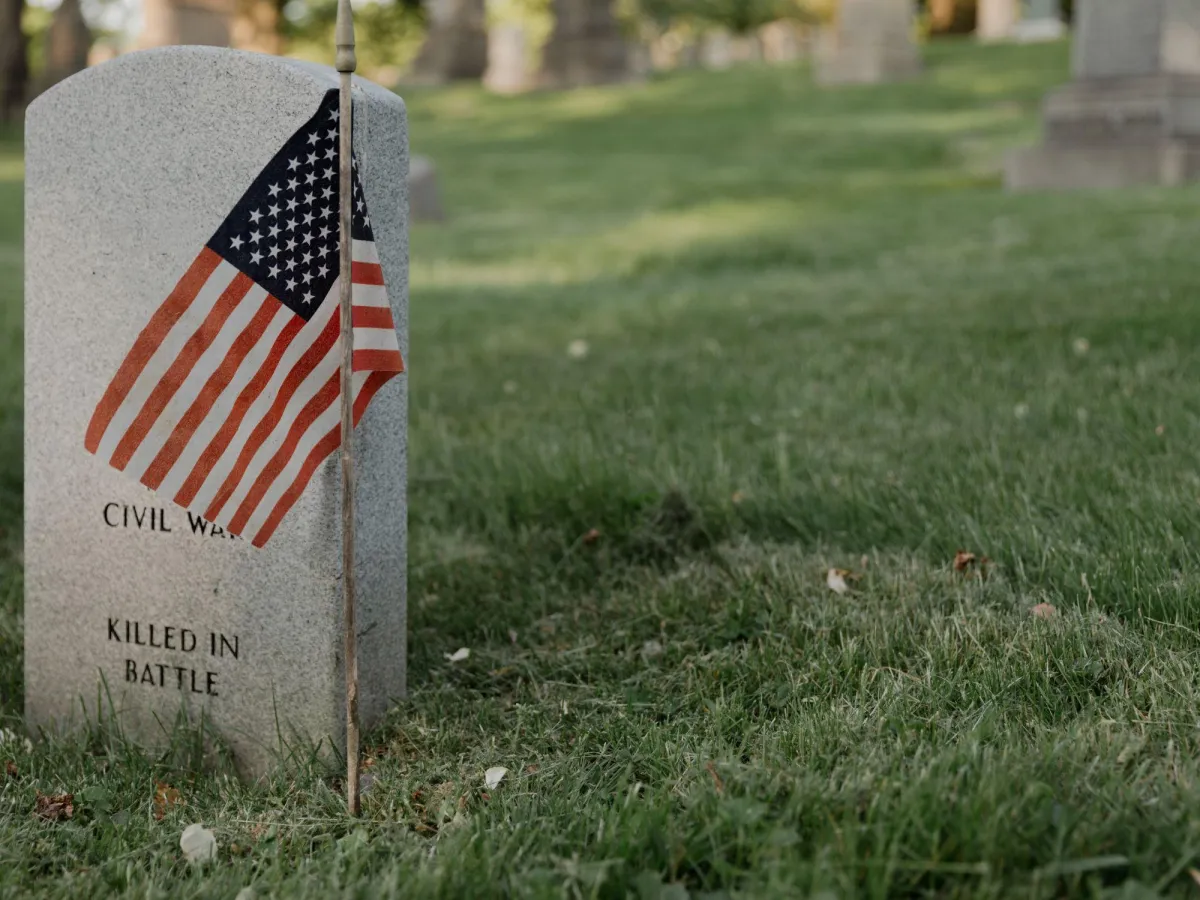
Upright headstones in granite or marble measure 42" long, 13" wide, and 4" thick, weighing about 230 pounds. Variations in stone color and veining may occur, with Lithochrome used for inscriptions in private cemeteries. Flat grave markers in granite or marble are 24" long, 12" wide, and 4" thick, weighing approximately 130 pounds.
Opening & Closing the Grave
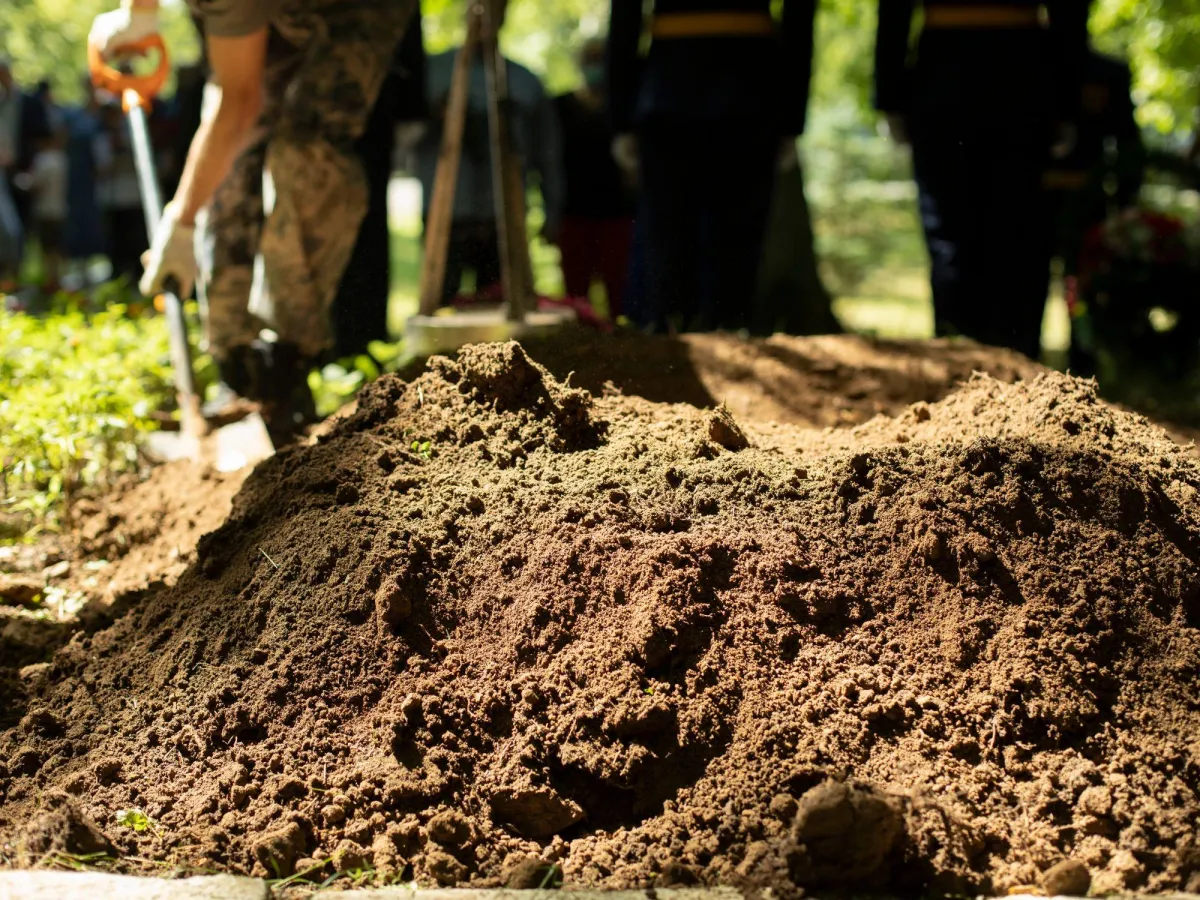
Opening and closing the grave involves preparing the burial site for a service and properly sealing it afterward. This process includes digging the grave prior to the ceremony and refilling it once the casket or urn is placed. This essential service is handled with respect and care to honor the deceased and is free to Veterans.
21 Gun Salute
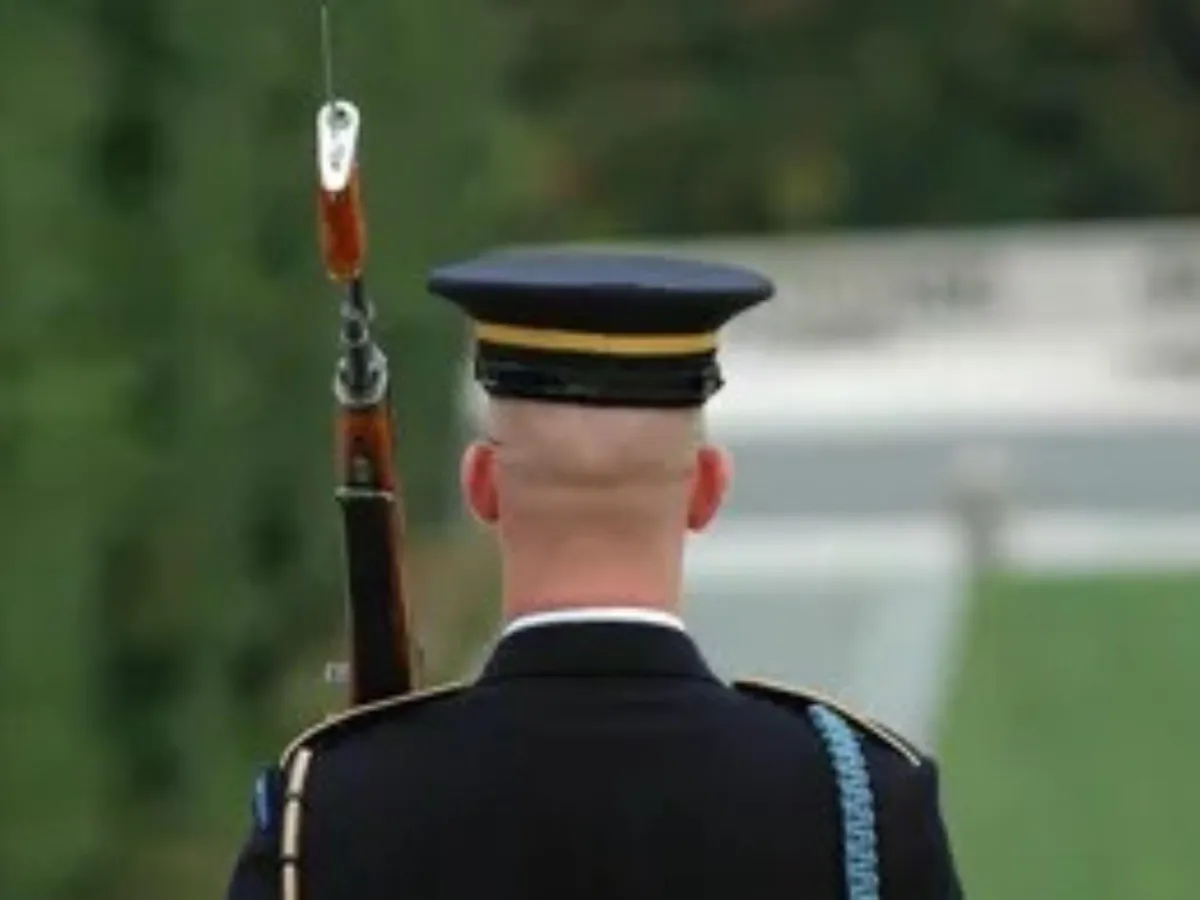
The 21-gun salute is a ceremonial honor given at military funerals and significant national occasions, symbolizing respect and gratitude. This tribute involves the firing of guns or cannons in a series and is one of the highest honors bestowed, reflecting deep appreciation for the service rendered by military personnel.
Presidential Certificate
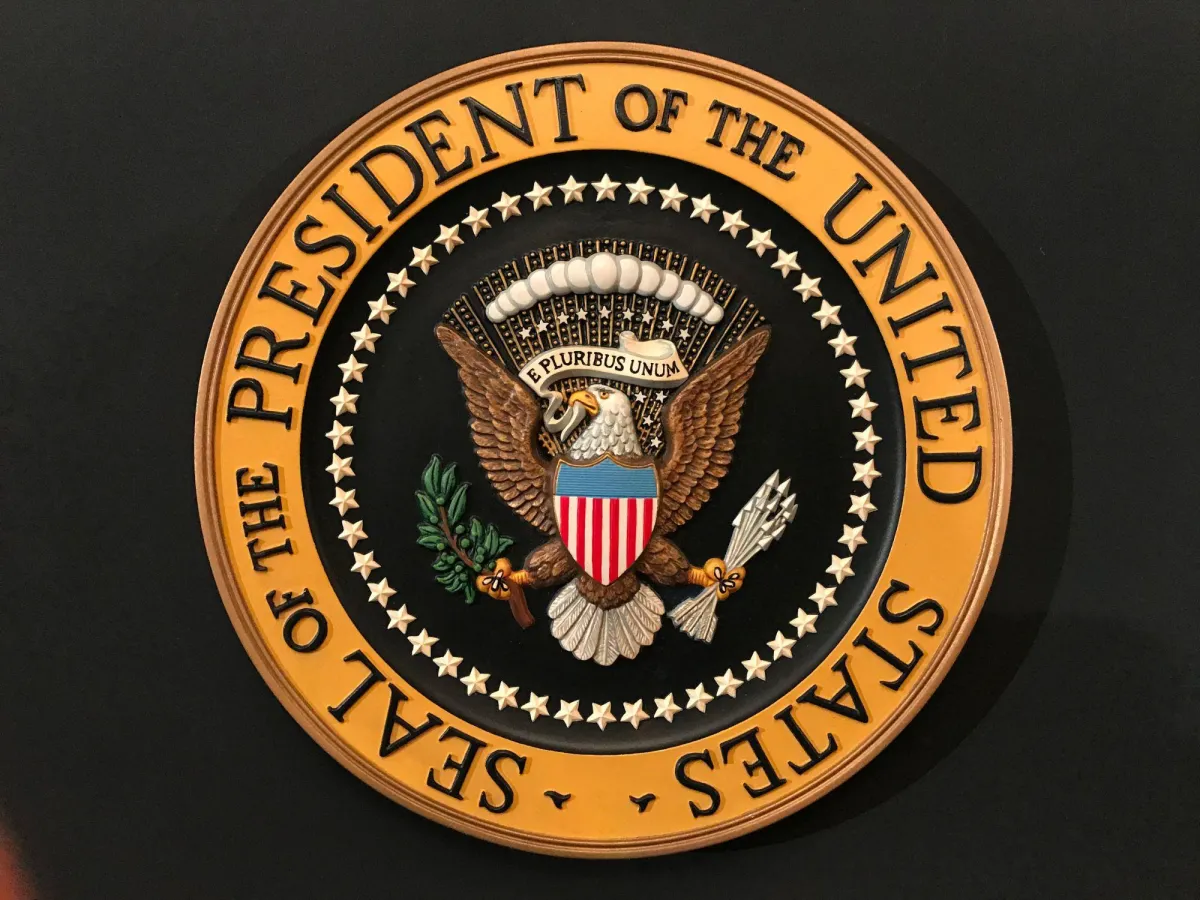
Upright headstones in granite or marble measure 42" long, 13" wide, and 4" thick, weighing about 230 pounds. Variations in stone color and veining may occur, with Lithochrome used for inscriptions in private cemeteries. Flat grave markers in granite or marble are 24" long, 12" wide, and 4" thick, weighing approximately 130 pounds.
Burial Allowances

The burial allowance for veterans provides financial assistance for funeral and interment costs. Eligibility requires discharge under conditions other than dishonorable, with varying reimbursement based on whether the death was service-connected. The allowance may also cover plot-interment costs in private cemeteries.
Military Funeral Honors
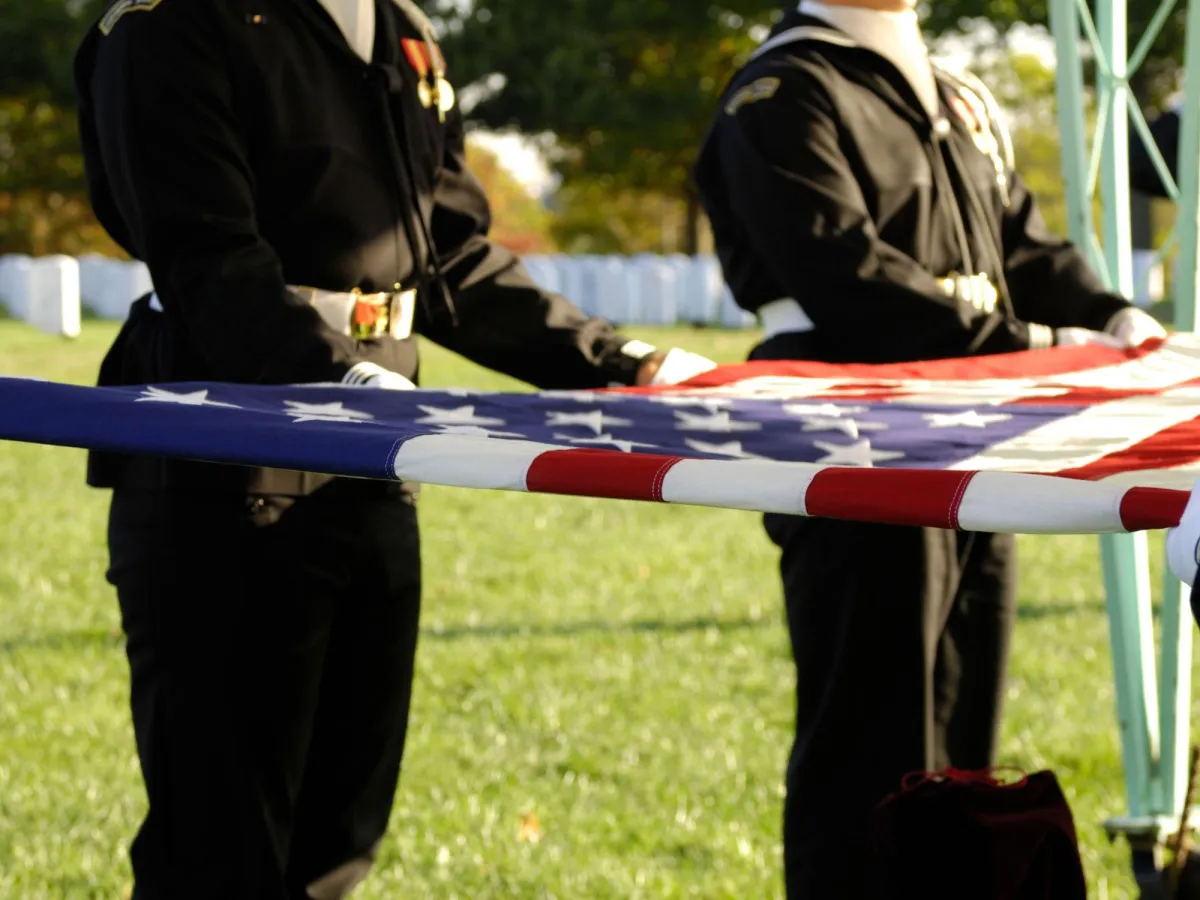
Military Funeral Honors are ceremonially rendered to honor deceased veterans. This tribute includes folding and presenting the American flag and playing "Taps." At least two uniformed military personnel participate. Families must request this service, which symbolically acknowledges the veteran’s service to the United States.
Perpetual Care

Perpetual care for veterans' graves in VA national cemeteries includes ongoing maintenance and landscaping to ensure dignified resting places. This service is provided at no cost to families, reflecting the nation’s commitment to honorably commemorate the service and sacrifice of its military members indefinitely.
United States Flag
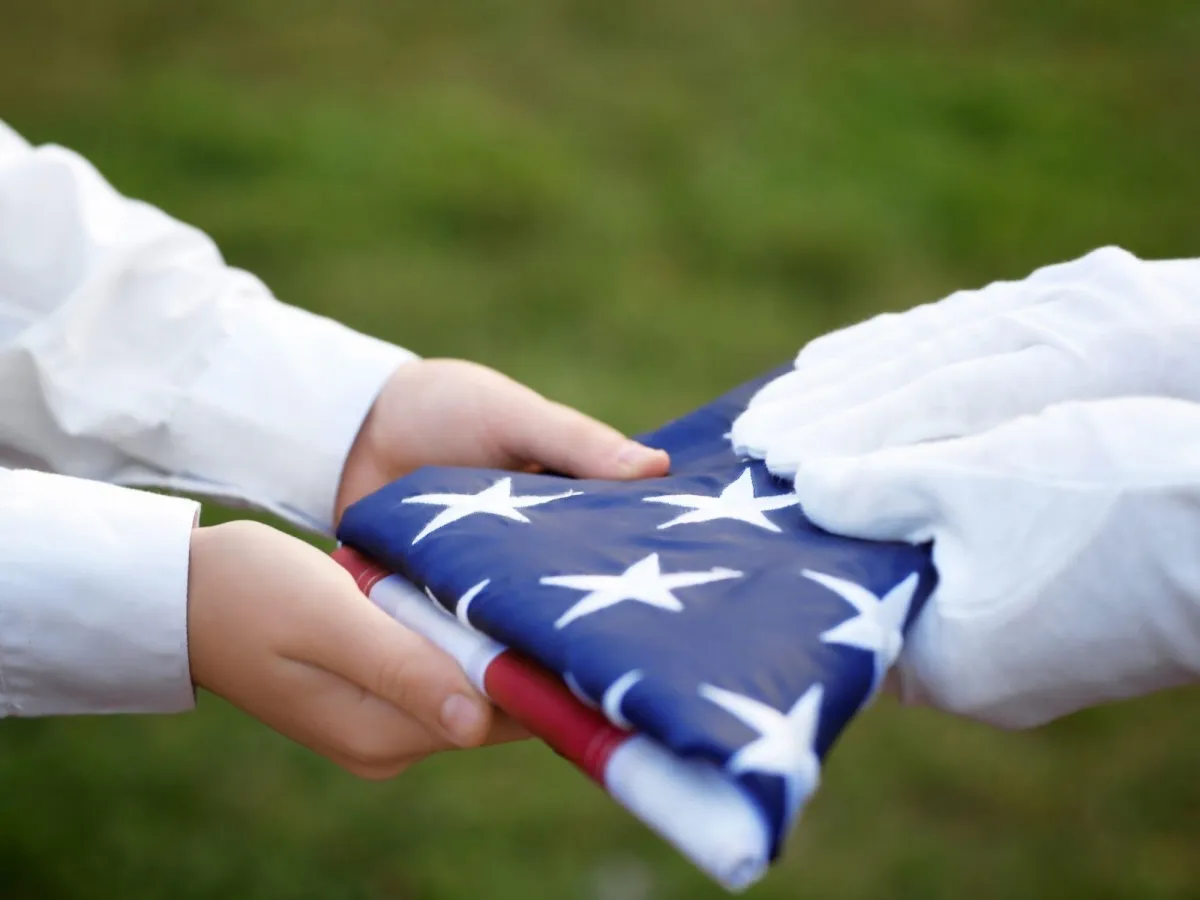
A United States flag is provided at no cost to drape the casket or accompany the urn of a deceased veteran. This flag symbolizes the nation’s respect and gratitude for the veteran’s service. After the service, the flag can be kept by the next of kin as a cherished keepsake.
We Understand the Challenges You Face
Financial Burden: Many families face unexpected financial stress when planning a funeral, which can be a heavy burden during a time of grief.
Complexity of Benefits: Navigating the VA’s burial benefits can be confusing and overwhelming, especially without guidance on how to properly access these entitlements.
Emotional Strain: The emotional toll of arranging a funeral can be compounded by the logistical challenges, leaving families feeling overwhelmed and unsupported.
Inadequate Savings: Many veterans might not have enough savings to comfortably retire, especially if they've had limited opportunities to save outside of military service.
Understanding Civilian Financial and Retirement Tools: The shift from military to civilian life includes navigating a different set of financial tools and retirement planning options, which can be complex without proper education and guidance.
Lack of Personalized Financial Advice: Many veterans may not receive personalized financial advice that considers their unique situations, including time spent in service, benefits, and transition challenges.
Mental Health Issues: Mental health issues, including PTSD, can affect veterans, impacting their ability to work and plan for the future.
Our Dedicated Solution
At Veterans Legacy Center, we specialize in alleviating these burdens through dedicated support and expert guidance. We help veterans and their families understand and fully utilize their entitled burial benefits, ensuring they receive every available aid to reduce financial strain and honor their service appropriately.
Services Include:
Personalized consultation to explore burial, retirement, life insurance, & income planning.
Assistance with all necessary VA burial paperwork and procedures.
Coordination with funeral homes to apply for benefits directly, reducing out-of-pocket expenses.
Ongoing support throughout the planning process.
Take Action Now
Ready to secure your future? Don’t navigate funeral planning alone. Let us help you honor your service with the respect and dignity you deserve. Click "Request Information" below to start a free, no-obligation discussion about your veterans' burial benefits, retirement options, and or income planning today.
Frequently Asked Questions
Common Questions Answered for your convenience.
Why is preneed funeral planning important?
Preneed funeral planning allows you to make arrangements for your final wishes in advance, relieving your loved ones of the burden of making difficult decisions during a time of grief. By preplanning your funeral, you can ensure that your wishes are honored and provide peace of mind for yourself and your family.
What if I move out of town, can I take my funeral plan with me?
Yes, if you move out of town, you can typically take your preneed funeral plan with you. Most preneed plans are transferable, which means you can transfer your existing plan to a funeral home in your new location. However, it's important to check the specific terms and conditions of your preneed agreement, as transfer policies may vary by provider.
Additionally, there might be differences in service costs between different areas, which could affect the final amount you need to settle with the new funeral home. Always inform your preneed provider about your move and discuss how the transfer process will be handled.
As a Veteran, can I prequalify for my burial at the National Cemetery?
Yes, as a veteran, you can prequalify for burial at a National Cemetery through the Department of Veterans Affairs (VA) pre-need determination of eligibility program. This program allows veterans to establish their eligibility for burial in a VA national cemetery before the time of need. By prequalifying, you ensure that your eligibility is confirmed in advance, which can provide peace of mind to you and your family and help facilitate the planning process.
To apply for a pre-need determination of eligibility, you will need to submit VA Form 40-10007, Application for Pre-Need Determination of Eligibility for Burial in a VA National Cemetery, along with a copy of your military discharge documents, typically your DD Form 214 or other equivalent documentation showing your discharge status and service dates.
The VA reviews the application and, if eligible, issues a decision letter that provides confirmation of your pre-need eligibility, which can be used when needed. This letter does not reserve a specific gravesite or schedule funeral services but confirms your eligibility for when the time comes.
What is the best age to start planning for retirement?
The best time to start planning for retirement is as early as possible. However, it's never too late to begin. Whether you're in your 20s, 30s, 40s, or beyond, proactive retirement planning can help you achieve your financial goals and secure a comfortable retirement lifestyle.
How much money do I need to retire comfortably?
The amount of money you need to retire comfortably depends on various factors, including your lifestyle preferences, anticipated expenses, retirement age, and life expectancy. A retirement specialist can help you assess your financial situation, set realistic retirement goals, and develop a customized retirement plan tailored to your needs.
What is Medicare, and when should I enroll?
Medicare is a federal health insurance program for people aged 65 and older, as well as certain younger individuals with disabilities. It consists of several parts, including Part A (hospital insurance) and Part B (medical insurance). Most people become eligible for Medicare at age 65, but enrollment timelines vary depending on individual circumstances. It's essential to understand your Medicare options and enroll in a timely manner to avoid potential penalties.
What is the difference between a 401(k) and an IRA?
Both 401(k) plans and IRAs (Individual Retirement Accounts) are retirement savings vehicles, but they have different features and eligibility requirements. A 401(k) is typically offered by employers and allows employees to contribute a portion of their pre-tax income to a retirement account, often with employer matching contributions. IRAs, on the other hand, are individual accounts that individuals can open on their own and contribute to independently of their employer. Both offer tax advantages and investment options to help you save for retirement.
Why is life insurance important for retirement planning?
Life insurance can play a crucial role in retirement planning by providing financial protection for your loved ones in the event of your death. It can help replace lost income, pay off debts, cover final expenses, and leave a legacy for your beneficiaries. Additionally, certain types of life insurance, such as permanent life insurance, can accumulate cash value over time, which can be used to supplement retirement income or cover unexpected expenses.
If I have a TSP account, can I lose money in the market?
Yes, if you have a Thrift Savings Plan (TSP) account, it is possible to lose money in the market. The TSP offers various types of investment funds, some of which are subject to market risk. The funds that invest in the stock market, such as the C Fund (which invests in common stocks), the S Fund (which invests in small and mid-size companies), and the I Fund (which invests in international stocks), can fluctuate in value. When the market performs poorly, the value of these funds can decrease, leading to potential losses.
However, the TSP also offers the G Fund, which invests in government securities that are specially issued to the TSP and offers a return without the risk of losing money in the market. The F Fund, which invests in fixed-income securities, has lower risk compared to the equity funds but can still experience fluctuations based on interest rate changes.
To manage risk, it's important to choose a mix of investments that aligns with your risk tolerance, time horizon, and financial goals. Diversifying your investments across different types of funds can also help mitigate the risk of losses.
What does the VA cover for my burial expenses?
The VA will cover your burial space, the vault, opening/closing, the headstone, and honors along with a Presidential Certificate and the US Flag. The spouse and a child disable dependent can be buried for Free with the Veterans at any National Cemetery worldwide.
